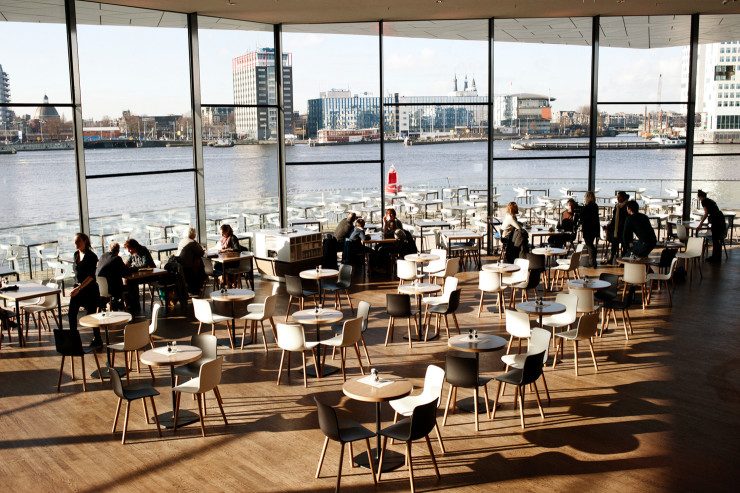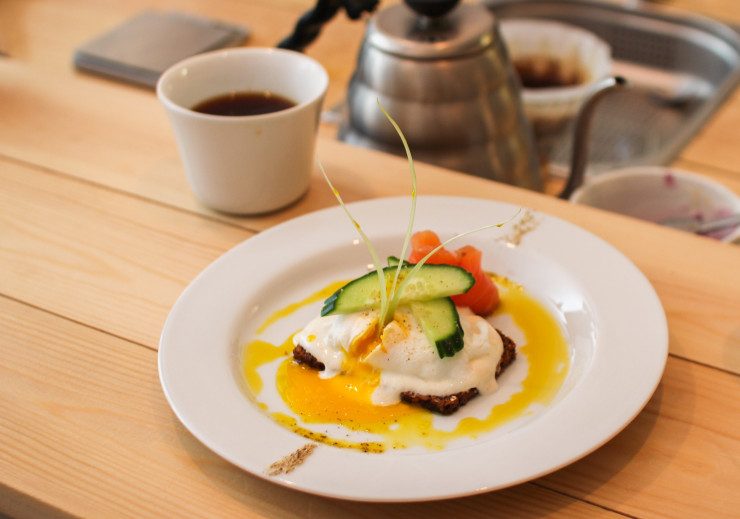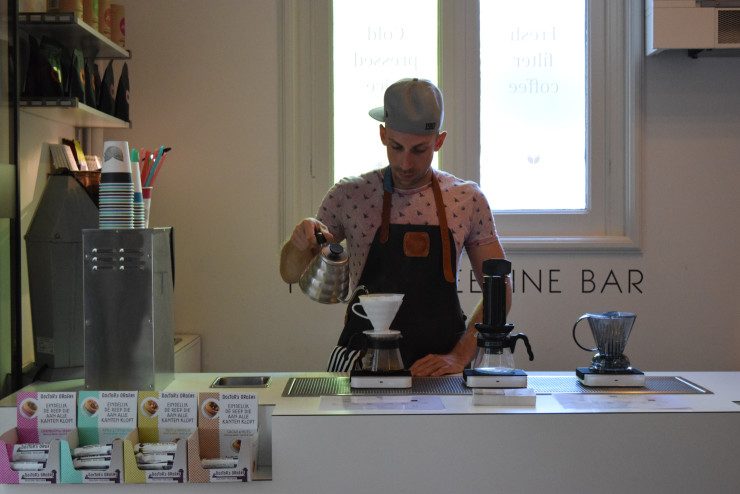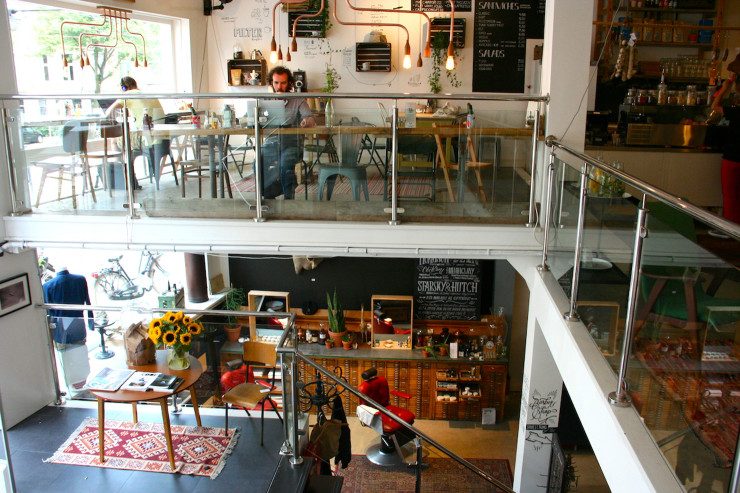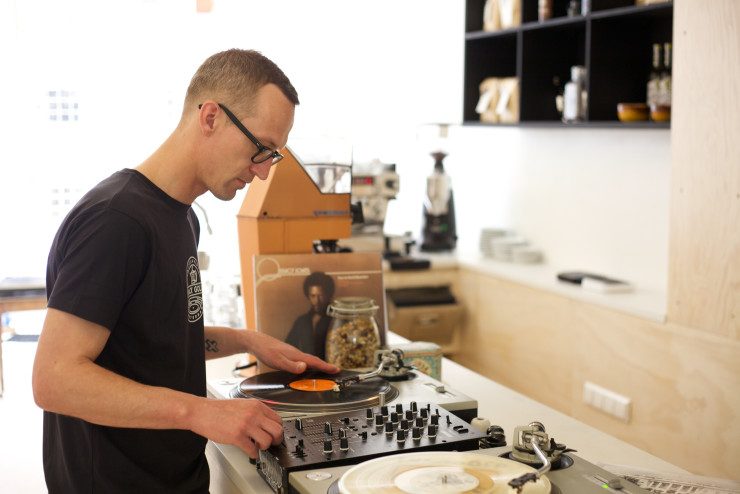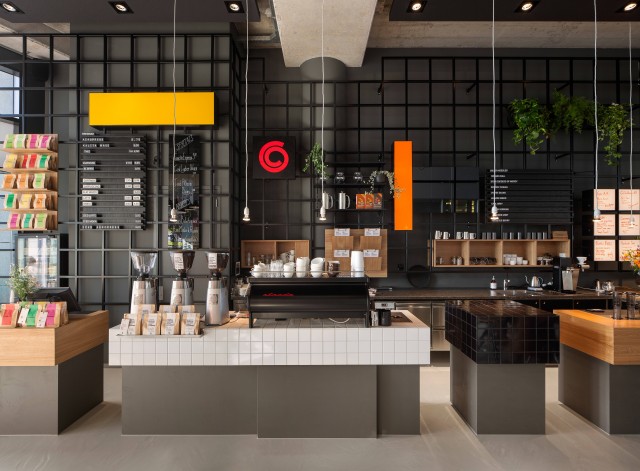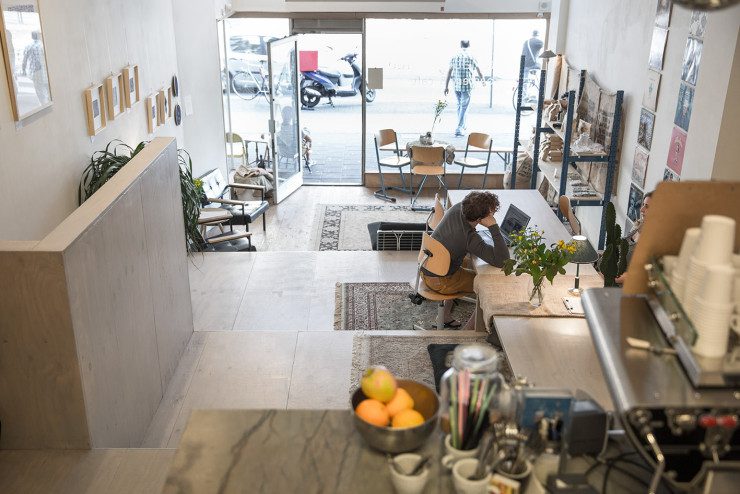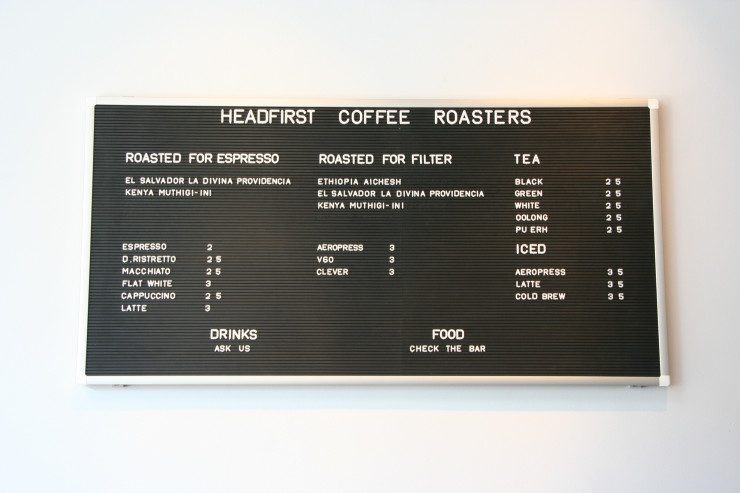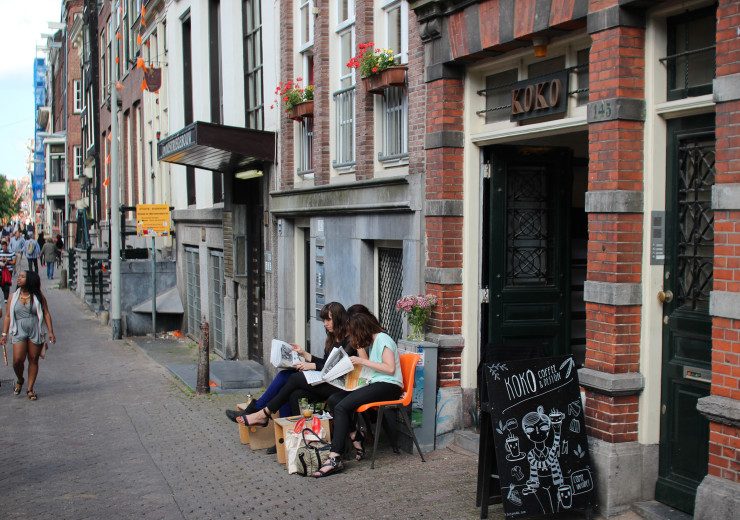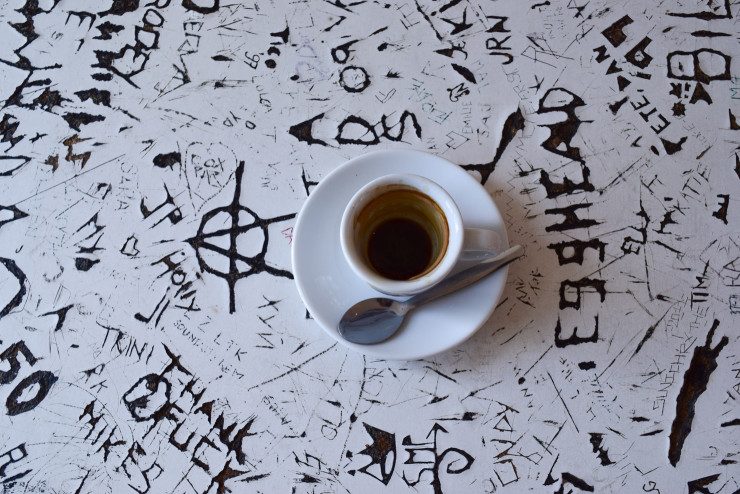Amsterdam is one of the world’s great cities, a living network of charming canals and row houses, thrumming with the non-stop vibrations of boats, bikes, and bars. Both utterly Dutch—handsome, direct, no-nonsense and highly functional—and totally international, this is a city of expats and global citizens, an international hub for art, music, design (especially design!) with a quality of life that’s tough to top. It’s also increasingly home to one of Europe’s most interesting and progressive food and coffee scenes, which have grown exponentially around each other over the last decade. Long gone are the days of mocking Dutch cuisine; today Amsterdam is home to restaurants that rival what you’ll find in London, Paris, or Copenhagen, whose new Nordic food & wine scene is clearly a major influence here.
The Dutch have loved coffee for centuries, and Amsterdam’s contemporary coffee scene is one of Europe’s most progressive and intriguing. We’ve covered the Amsterdam coffee scene extensively on Sprudge, with content handled by a platoon of our core writing staff over the last several years. Our ability to report from this remarkable city has never been better, thanks to our recent introduction of Karina Hof as Sprudge.com’s first-ever Amsterdam staff writer.
Here’s 10 of our most favorite Amsterdam features pulled from the Sprudge archives—a great place to start for visitors and coffee enthusiasts alike. Grab a stroopwafel and dig in.
Scandinavian Embassy
Progressive coffee is toddling, step by careful step, into being fully embraced by the highest heights of the culinary world. It’s my belief that we’ll see more daring chefs like Rikard Andersson teaming up with coffee professionals like Nicolas Castagno in the coming years. In a way, at my most optimistic, Scandinavian Embassy is like a message in a bottle, sent back in time from a future where the best food in the world and the best coffee in the world hold hands and blow minds in gleeful congress. It’s a world I want to live in, and it’s a union that great coffee deserves.
But Scandinavian Embassy is here right now, and open for business on a quiet parkside street in Amsterdam. Start planning your pilgrimage, and thank us later.
Scandinavian Embassy is located at Sarphatipark 34, De Pijp, Amsterdam.
The Coffeevine Bar
Yes, it is a coffee bar. No, an espresso machine is not in sight. All the coffee here is prepared with an apparatus requiring a filter: an AeroPress, a Clever, or a V60. This is Amsterdam’s first filter bar. It is likely also the only venue in the Netherlands so singularly devoted to slow coffee. And it is one of the very few—maybe two, some experts posit—filter-only coffee bars on the continent.
The Coffeevine is located at Leidseplein 26, Amsterdam.
Hutspot
You cannot help but love this space, but you also secretly resent it, because it’s “curated” to the extent that said curation is forced, and there has to be a limit to how far we as a nice-stuff-appreciating society are going to allow our buttons to be pushed. That dull, pointed buzz I feel at the back of my skull: Is it pain? Irony? Recognition? Every corner is an Instagram post waiting to happen; you will consider making an Instagram at least a half dozen times as you walk through Hutspot, and this is not by accident. And yet you want to curl up and stay awhile. Soak in this beautiful life that’s being handed to you on a plate, a plate that’s better than any other plate you’ve seen before, and certainly better than the one you’ve got back home in your humble cupboard.
You go upstairs for coffee, locally roasted by Bocca, and choose to sit in the funky space that feels moderately North African, if you had ever been to North Africa and knew what that was like. There are decorative pillows in bright colors. You want to sit here and nurse a soy latte all day. This is allowed.
Hutspot is located at Van Woustraat 4, Amsterdam.
Black Gold
What feels really new about Black Gold is the man behind it. After 15 years of “working in an office, drinking lots of bad coffee,” as he recalls it, Siebrand van Hengel has obviously set his turntable to a different speed. To imagine his old incarnation, an inspector for the Dutch Media Authority tasked with detecting hidden advertisements in broadcasts, is unsettling—his is a globally relatable story. He admits the work drove him to hit 10 cups a day. “You drink coffee because it’s just a moment away from your horrible job,” he says.
As a longtime record collector and devotee of boom bap—’90s and ’90s-inspired hip-hop—opening a music store had been a dream. But while he let his vinyl vending visions run wild, he also had doubts. “You start thinking, ‘Is there enough money in it? Can I pay off my house?’” he remembers.
Then coffee called. “I started thinking of coffee and vinyl as a way of supporting each other. It sort of seemed like they connect somehow,” he says. “They’re both analog in a way.”
Black Gold is located at Korte Koningsstraat 13, Amsterdam.
Coffee Company Oosterdok
The Amsterdam coffee scene is experiencing something of a renaissance, beyond the city’s many coffee houses. Reflecting that radically changing landscape, Coffee Company has recently opened a new Oosterdok location with a decidedly Third Wave spin. And wow, is it a beautiful cafe to look at. As Coffee Company’s Stijn Braas tells us, [Amsterdam] is an interesting place in terms of being between the classic darker roast French and Italian coffee culture and the progressive lighter roasts of the Nordic countries. Different from places nearby like London and Scandinavian cities, Amsterdam was relatively late to the game. Only a couple of years ago the first new style coffee shops opened.
Coffee Company Oosterdok is located at Oosterdokskade 137, Amsterdam.
White Label Coffee
White Label’s property is longer than it is wide, creating a sort of geometrically dramatic effect. The rectangularity is heightened by a multi-level floor, ascending in hanging-gardens-of-Babylon-style tiers. At its apex is the bar. Atop that are a Kees van der Westen Spirit, two Mazzer Kony grinders, a Mahlkönig EK 43 grinder, and a spread of homemade baked goods. Clients looked very comfortable on a recent afternoon, sitting and drinking cozied up to the Giesen W6 roaster, a Probat sample roaster, and plenty of burlap.
White Label Coffee is at Jan Evertsenstraat 136, in Amsterdam.
De Koffieschenkerij
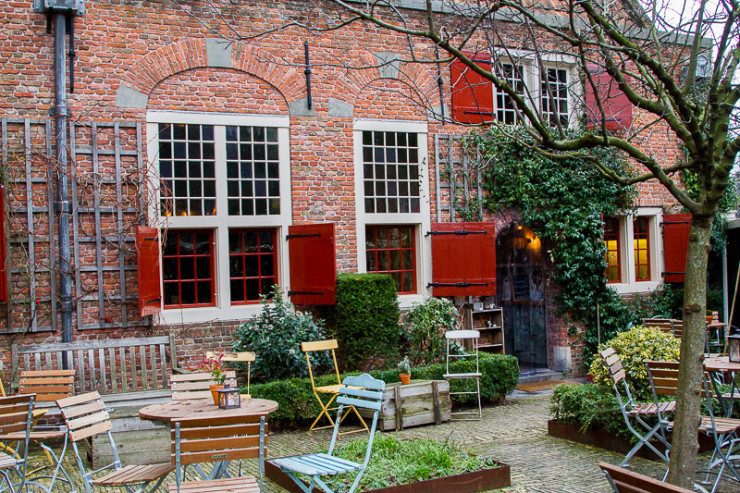
The venue is located in Amsterdam’s oldest building, the Oude Kerk, indeed an “old church” dating back to 1306. And although De Koffieschenkerij turns three this spring, it was only licensed last year to operate as more than a museum cafe servicing entrance-fee-paying visitors to the church.
“It’s nice to know the priests were changing their clothes here,” smiles owner Job Oosting. Not that he spends much time thinking about what clergy do behind closed doors. But when he and his partner, Anne Rijks, were presented with the church’s decades-long disused sacristy as a possible spot for their venture, they saw the potential right away. “We said: ‘Yes, start a coffee business here,’” recalls Oosting. “It’s not big, but it’s great—you know, the atmosphere.”
De Koffieschenkerij is located in side Oude Kirk, at Oudekerksplein 23.
Headfirst Coffee Roasters
What I like about roasteries that double as cafes is that the focus, when done well, is truly on highlighting the skill and range of their roasting. This is not “I’ll have a coffee” and you get whatever is on hand and hope for the best. Here you’re invited to choose from different coffees and different roasts depending on what you’re planning to drink; if you’re not sure, the baristas are happy to lead you through the choices. Up on the wall was a list of the different coffee choices, which Headfirst divides into “roasted for espresso” and “roasted for filter.”
I went with the Ethiopia Aichesh, having a thing for the more floral coffees with bright acidity. It was a good choice. In fact, an amazing choice, being one of tastiest pour-overs I have had in quite a moment. These guys know their stuff.
Headfirst Coffee Roasters is located at Westerstraat 150.
Koko Coffee & Design
Koko is one of those increasingly common specialty coffee outlets: a shop of many retail things. Founded by owners Karlijn Timmermans and Caroline Kruijssen, the duo has set out to make Koko “a place for all senses and a place where people feel at home and get inspired.” Their selection of independent goods focuses on fashion from Scandinavian and Dutch designers like Libertine-Libertine, Monique Poolmans, and Stutterheim, alongside coffee-brewing gear, postcards, magazines, and other bits of art. The coffee, roasted by Caffenation in Antwerp, and their pastries, from local baker “De dikke lepel” (The Fat Spoon) help create an overall air of consideration and quality.
Koko Coffee & Design is located at Oudezijds Achterburgwal 145 in the Amsterdam Red Light District.
La Tertulia
La Tertulia has always had a uniquely un-coffeeshop-like airiness about it. The breezes blow off the city’s longest canal. Carbon dioxide-hungry plants abound. Light streams through big windows—and it was on one of them that, from the outside, I saw the small sign: “La Tertulia proudly serves Bocca coffee.” This was interesting. Bocca, which began roasting in 2001 in an Amsterdam garage just a few blocks northward, is fast becoming the Netherlands’ favorite specialty roaster, and the brand has been represented at international coffee competitions by Dutch baristas. The company has some scale, but remains indie enough for Third Wave cafes to showcase it.
The elder of the mother-daughter duo, who own the coffeeshop, told me they had been using these beans for “three or four years.” Forgiving her imprecision, I asked how was it that they decided on that particular brand. I wanted a moving story: say, about the communitas of cannabis and coffee and its leveling effect on humanity. “Looking on the internet,” she replied.
La Tertulia is located at Prinsengracht 312.
Enjoy more Amsterdam coverage in our city hub.
Top photo is of Eye Cafe at the Eye Film Institute in Amsterdam. Shot by Teska Overbeeske and used by permission, from our feature Dutch Museums With Incredible Coffee Bars.
The post 10 Remarkable Coffee Experiences In Amsterdam appeared first on Sprudge.


